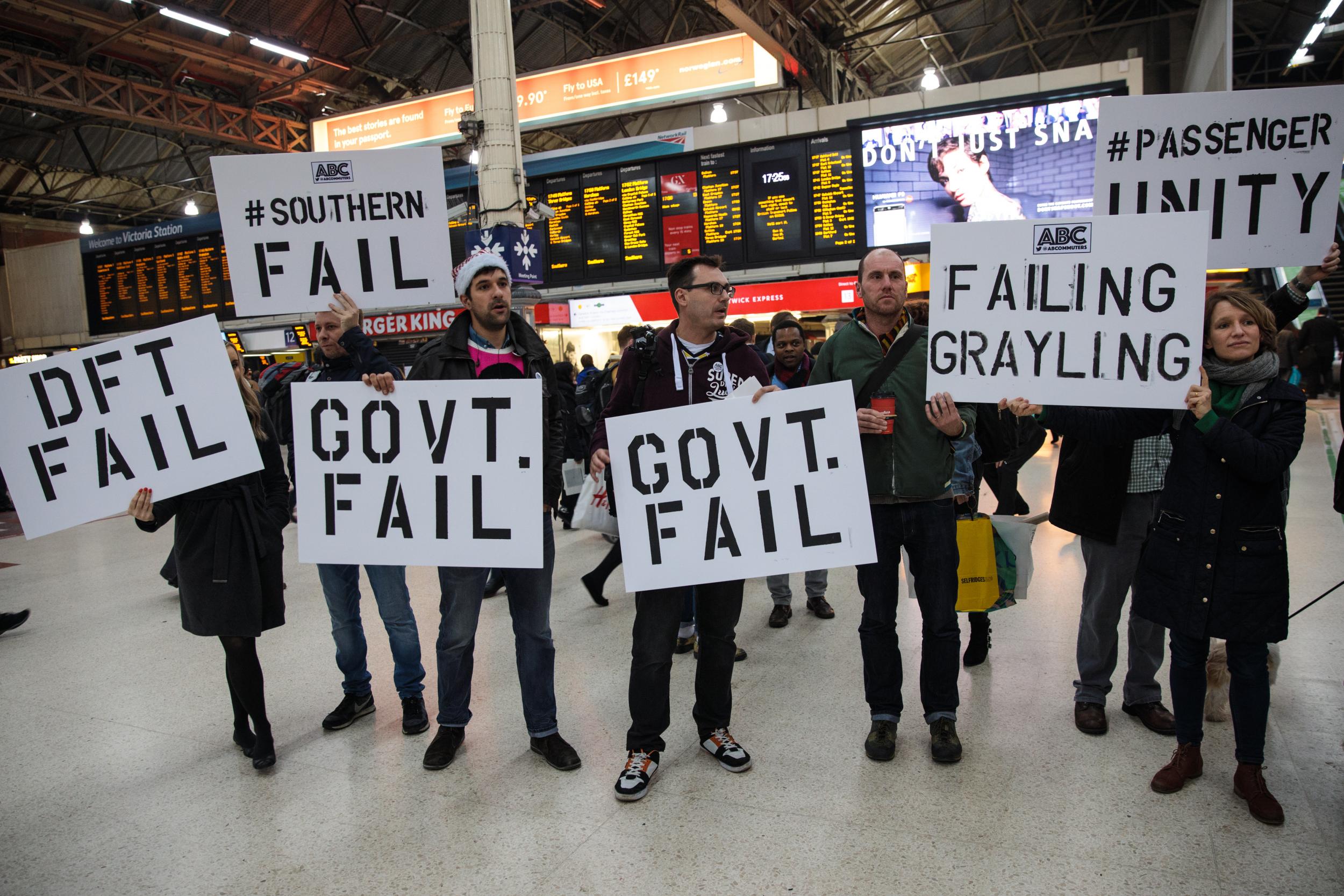Meltdown Monday shows rail privatisation has hit the buffers
It's fair to ask whether it was any better under British Rail, but on the flipside, how could it get any worse than this?

Your support helps us to tell the story
From reproductive rights to climate change to Big Tech, The Independent is on the ground when the story is developing. Whether it's investigating the financials of Elon Musk's pro-Trump PAC or producing our latest documentary, 'The A Word', which shines a light on the American women fighting for reproductive rights, we know how important it is to parse out the facts from the messaging.
At such a critical moment in US history, we need reporters on the ground. Your donation allows us to keep sending journalists to speak to both sides of the story.
The Independent is trusted by Americans across the entire political spectrum. And unlike many other quality news outlets, we choose not to lock Americans out of our reporting and analysis with paywalls. We believe quality journalism should be available to everyone, paid for by those who can afford it.
Your support makes all the difference.It’s been described by rail unions as “Meltdown Monday”. If you want to know why nationalisation is now such a popular policy in the polls you only need to look at the disruption unhappy customers of Govia Thameslink Railway, the UK’s biggest franchise, have been experiencing over the last couple of days.
The background is the introduction of a new timetable. It was billed as the biggest overhaul to services in the UK, with almost nothing left unchanged.
That was always going to be a recipe for disaster given the way these things inevitably work out in the UK, and so it has proved.
Dozens of trains were cancelled after the shake up began on Sunday, and the disruption continued as commuters headed out to work today. It’s pushed even those used to shabby services at an inflated price to boiling point.
That could be seen in the veritable blizzard of angry tweets about what has been going on. We can’t respond to all of you, say the feeds of ThamesLink, Great Northern & Southern, we’re experiencing high volumes of traffic. I’ll just bet you are.
I imagine one event that might also experience a high volume of traffic is the “#MeettheManager” session at Kings Cross the Great Northern part is holding on Thursday.
Pity the poor railway rube who gets told they’re heading out to face the music between 07.30 and 09.30. They’d best pack a hard hat because I imagine the brickbats will be flying “near to platforms 9-11”.
If, that is, anyone can actually get there between those times. And if the event doesn’t get cancelled. Like so many services.
The idea of the shake up is to improve efficiency and thus increase capacity, creating much needed space for an extra 50,000 passengers at peak times. That’s laudable given the way some services pack ‘em in like sardines.
But of course, what has been produced is less a brave new world in which people can get to work without screaming than it is the same old song.
At this point it is fair to raise one question: Would any of this be any better under a resurrected British Rail?
Those who remember that institution will recall that it was regularly the butt of comedians’ cheap jokes on Saturday night TV. They would urge against looking back into the past through rose tinted spectacles.
To counter that I would raise another question: How could it possible get any worse than what we have today? Truly?
Even before this, Southern Rail was a byword for dysfunction. Just last week the East Coast rail franchise was taken into state hands for the second time in a decade. It’s worth remembering that it worked rather well the last time it was nationalised. It was only Government dogma that saw it reprivatised.
Under a different system it might be possible to address the fact that no one ever seems to be held to account for the foul ups that occur, or the fact that the same mistakes just keep on getting repeated.
It's also hard to imagine a state run system being able to get away with telling staff not to let disabled passengers on a train if it would delay it even a little bit, as a GTR staff manual infamously did. There is currently no such thing as a right to ride. In too many cases you aren’t able to ride at all if you have a mobility impairment. In a rich industrialised nation that’s a disgrace.
As a result of all this, the calls to tear it all up and start afresh are only going to get louder. You do rather wonder much more evidence is it going to take to ram home the point that when it comes to rail, privatisation has hit the buffers.
Subscribe to Independent Premium to bookmark this article
Want to bookmark your favourite articles and stories to read or reference later? Start your Independent Premium subscription today.
Join our commenting forum
Join thought-provoking conversations, follow other Independent readers and see their replies
Comments